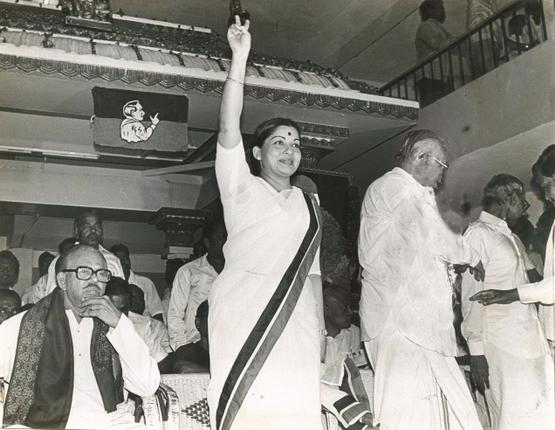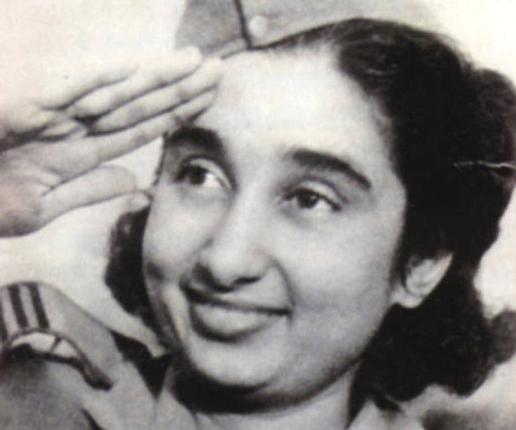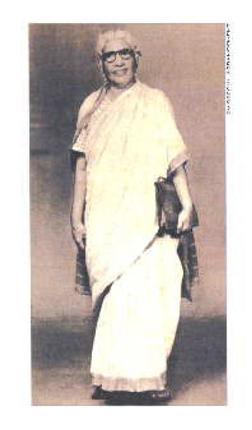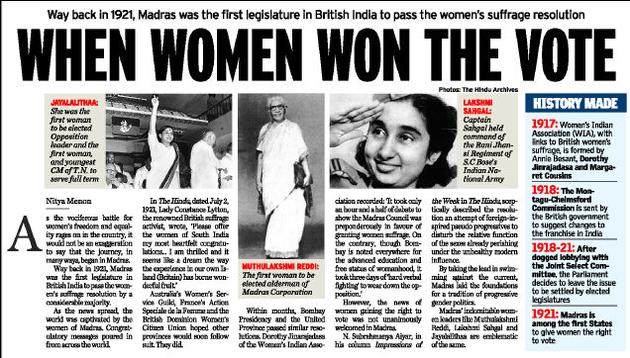Way back in 1921, Madras was the first legislature in British India to pass the women’s suffrage resolution by a considerable majority
As the vociferous battle for women’s freedom and equality rages on in the country, it would not be an exaggeration to say that the journey, in many ways, began in Madras.
Way back in 1921, Madras was the first legislature in British India to pass the women’s suffrage resolution by a considerable majority.
This meant that for the first time, women were recognised as ‘people’ by the State, thereby given the right to vote on the same condition as men.
As the news spread, the world was captivated by the women of Madras. Congratulatory messages poured in from across the world.
In The Hindu, dated July 2, 1921, Lady Constance Lytton, the renowned British suffrage activist, wrote, ‘Please offer the women of South India my most heartfelt congratulations on their winning the vote. I am thrilled and it seems like a dream the way the experience in our own Island (Britain) has borne wonderful fruit.’
Australia’s Women’s Service Guild, France’s Action Speciale de la Femme and the British Dominion Women’s Citizen Union too extended their greetings and hoped other provinces would soon follow suit. They did.
Within months, Bombay Presidency and the United Province passed similar resolutions.
Interestingly, it was the Madras Council’s resolution that reflected the most decisive mandate in comparison to others.
Of the 90-odd members present in the Council, 40 voted for the recommendation, 10 opposed it and 40 remained neutral.
Dorothy Jinarajadasa, of the Women’s Indian Association, who attended both the debates in Madras and Bombay recorded: ‘It took only an hour and a half of debate to show that the Madras Council was preponderously in favour of granting women suffrage. On the contrary, though Bombay is noted everywhere for the advanced education and free status of womanhood, it took three days of ‘hard verbal fighting’ to wear down the opposition.’
However, the news of women gaining the right to vote was not unanimously welcomed in Madras.
N. Subrahmanya Aiyar, in his column Impressions of the Week in The Hindu, sceptically described the resolution an attempt of foreign-inspired pseudo progressives to disturb the relative function of the sexes already perishing under the unhealthy modern influence.

Echoing similar disdain, a reader from Saidapet, in a letter to the editor, exclaimed, ‘It is not a matter of congratulations that the legislative council should have resolved to extend suffrage to Indian women. For progress, man must be both the controller in politics and civics. His sex stands for performance, conformity and therefore, for uniformity, essential for common good and justice.’

By taking the lead in swimming against the current, Madras laid the foundations for a tradition of progressive gender politics. Indomitable women leaders like Muthulakshmi Reddi, Lakshmi Sahgal, and Jayalalithaa are emblematic of the same.

THE MAKING OF HISTORY
1917: The Women’s Indian Association (WIA), with links to the women’s suffrage movement, is formed by Annie Besant, Dorothy Jinrajadasa and Margaret Cousins
1918: The Montagu-Chelmsford commission is sent by the British government to suggest changes to the franchise in India where the WIA, led by Sarojini Naidu, petitioned for women’s right to vote
1918: The Southborough Franchise Committee tours India to gather information. After accepting women’s petitions from just two provinces, it decides Indian women do not want the right to vote
1918-21: After dogged lobbying with the Joint Select Committee, the Parliament decides to leave the issue to be settled by elected legislatures
1921: Madras is among the first States to give women the right to vote
source: http://www.thehindu.com / The Hindu / Home> News> Cities> Chennai / by Nitya Menon / Chennai – March 08th, 2015
